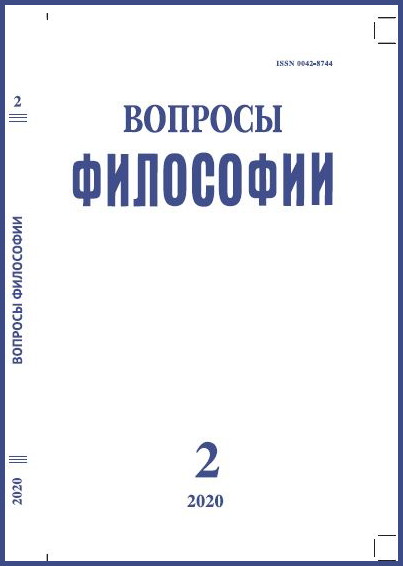The Study of Religion, not Atheism Propaganda
DOI:
https://doi.org/10.21146/0042-8744-2020-2-110-119Keywords:
Religious Studies, Atheism, History of Russian Orthodox Church, Mikhail P. NovikovAbstract
The article is devoted to the study of the works of Mikhail P. Novikov (1918‒1993) in the aspect of his forecasts regarding the development trends of modern Orthodox Russian theology. It is shown that only the trends outlined in the 70s of the last century have been fully realized at the present time. Novikov highlighted them: new accents in the interpretation of dogmatic positions, the expansion of the field of horizontal theology, the attraction of ideas of theologians and philosophers, including those previously assessed as marginal, as well as, appeal to the experience of religious philosophy that developed in the bosom of the non-Orthodox tradition. At the same time, the attitude to other religious traditions began to change, there was increased attention to social problems, environmental issues and so on. The new phenomena in theology highlighted by Novikov were not an accident, but, as he predicted, determined the main line of development of Orthodox theology and its modern face. Novikov analyzed the texts, took into account the trends in different branches of theology on a global scale, used standard scientific methodology. Religious studies performed a predictive function peculiar to science in Soviet times, even being called scientific atheism. Novikov’s ideas are useful in our time. First, it is necessary to preserve the methodological approach – the consideration of domestic social processes in the context of the world. Secondly, it should be recognized that modernization processes are not the result of someone’s will and other subjective factors, that they arise with necessity and obey objective laws. Thirdly, it is necessary to carefully highlight the main features in the theological assessments of society and history. The latter is particularly difficult, since it involves abstracting from the actual social significance of specific theological texts and turning them into the subject of scientific research. In this respect, the experience of Soviet religious studies is truly invaluable and should be studied.

